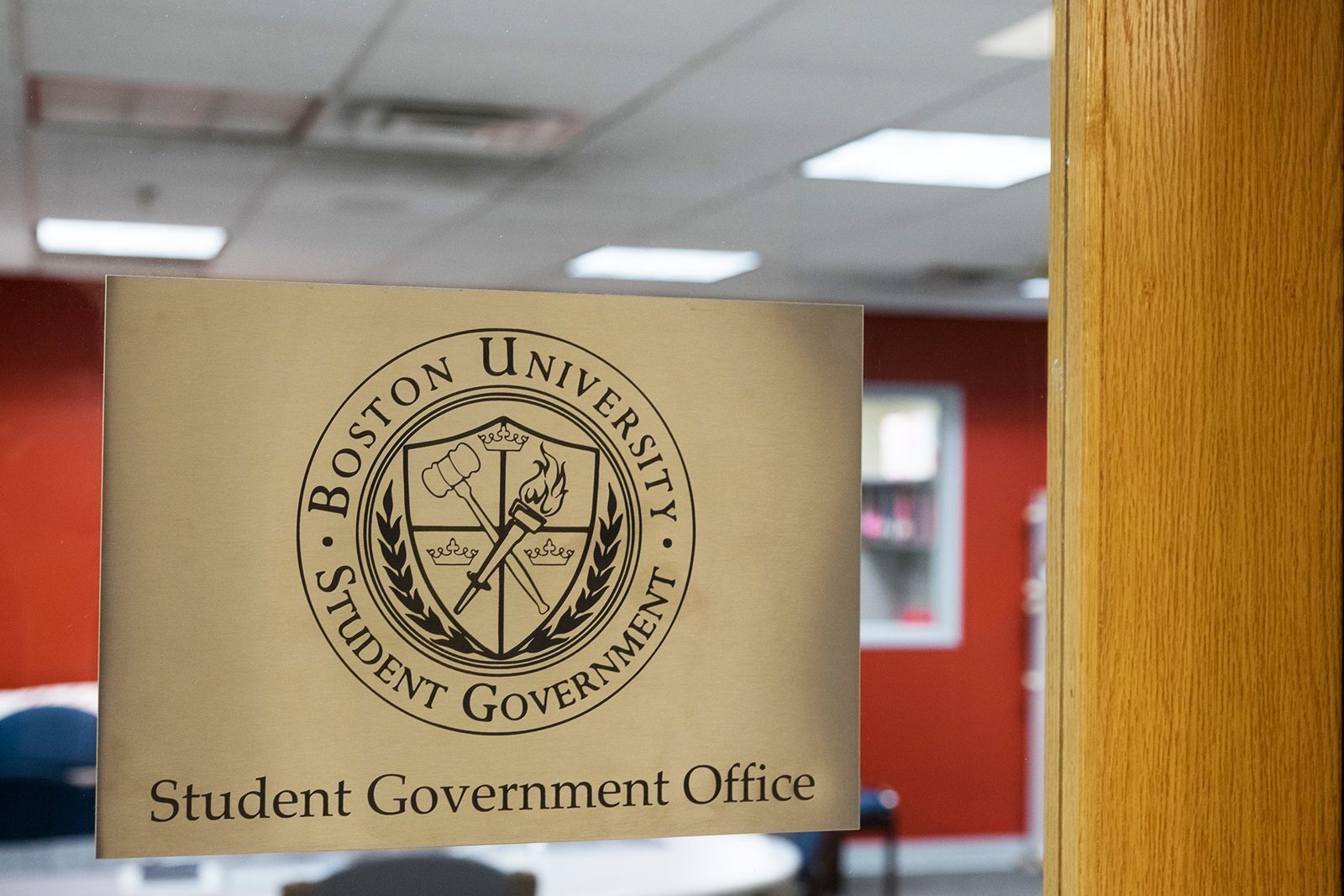
Boston University Student Government voted on structural bills, while the judicial branch introduced a proposal to unify the College of Arts and Sciences ballot, in a Monday night meeting.
The objective of Bill 008 was to “clearly define branch leadership of Student Government,” ensure StuGov is equally co-represented by its three branch leaders — student body president, senate chair and chief justice — and to codify meetings between these leaders.
The bill states that any position, programs, or initiatives carrying the name “Boston University Student Government” or “Boston University Undergraduate Student Government” must carry the approval vote of all branch leaders.
It additionally states that no individual branch can refer to themselves in a way that insinuates they represent the entirety of StuGov.
In previous senate meetings, StuGov members raised concerns over the management of its communication platforms and the problems that arise with having all three branches approve emails sent from the StuGov account.
The bill failed with 19 votes in the affirmative.
Next, the legislative branch voted on a bill which seeks to introduce the Intersection of Marginalized Peoples and Community Task-Force (I.M.P.A.C.T.) Committee.
The bill states the committee would advocate for students who feel an “irremovable aspect of their identity” is being marginalized by the University or student organizations.
Bill 009 stated I.M.P.A.C.T. would “serve as an agent” for any marginalized communities at BU, with positions dedicated, but not limited to, researching data relating to diversity, equity and inclusion at BU.
Senators have previously raised concerns that the language of the bill would allow any student organization which felt marginalized — such as political minority groups on campus — to join I.M.P.A.C.T. The bill’s language was subsequently amended.
The current draft of the bill states that any person or group of people demonstrating discriminatory behavior will be required to leave an I.M.P.A.C.T. meeting or event. The committee would later hold a majority vote to determine if the offending party will be allowed to attend again.
The bill passed with 33 votes in the affirmative.
The judicial committee created a presentation for a unified ballot within the College of Arts and Sciences. A unified ballot would allow students to directly vote for StuGov’s at-large party, its e-board and representatives from each college’s respective student government on Student Link. Currently, students do not directly vote for StuGov senators.
The Sargent College of Health and Rehabilitation Sciences, Questrom School of Business, College of Engineering, College of General Studies, Wheelock College of Education and Human Development, College of Communication and the School of Hospitality Administration have all joined the Unified Ballot Initiative.
CAS — the largest college at BU, as stated in its website — has not yet joined the unified ballot.
The proposed CAS Unified Ballot would allow CAS students to vote for representatives for their respective year.
Under the proposed ballot, the class of 2024 and 2025 would receive three senate seats each while the class of 2023 would receive two. CAS StuGov would personally recruit members to fill three seats to represent the class of 2026 and one seat would be held by the CAS Executive Vice President.
“A breakdown by class year is going to really help reduce the amount of work on the students and on CAS student government itself,” said Associate Justice Ilana Keusch, a CAS sophomore.
Students would use ranked-choice voting to vote for the candidates in their year under the proposed ballot.
Chief Justice Daniel DaPonte said there was a “dramatic drop off from junior to senior year” in StuGov participation that would justify the one less seat for the CAS senior class.
The justices will be continuing talks with CAS StuGov about adding them to the unified ballot.
The Judicial Committee seeks to implement the unified ballot in next year’s election season.




